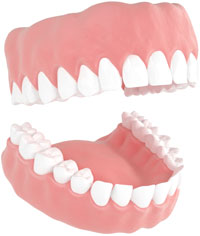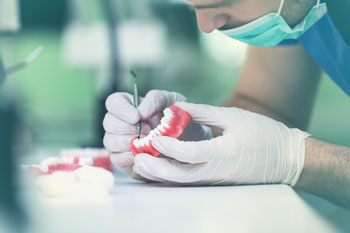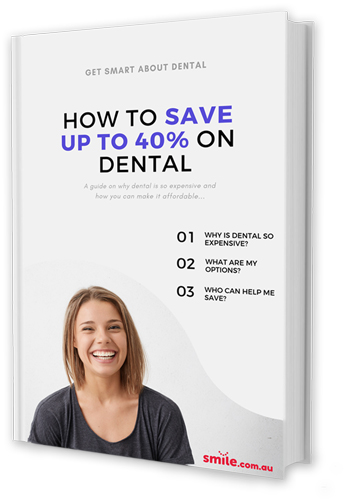Dentures: Complete & Partial Dentures, Tooth Removal Treatment Cost
Reviewed June 2024 by Our Content Experts
- What are Dentures?
- How Much Do Dentures Cost?
- What Is The Treatment Procedure For Dentures?
- How Do I Know if I Need Dentures?
- Types of Dentures Available
- How Long Does It Take To Get Dentures?
- Does Insurance Cover the Cost of False Teeth?
- What are the Differences between Conventional & Immediate Dentures?
- Is It Painful To Get Dentures?
- How Long Do Dentures Last?
- What Is A Denture Reline?
- What Are The Benefits of Dentures?
- What Are The Potential Risks of Dentures?
- Are There Any Alternative Options to Dentures?
- What Do False Teeth Feel Like?
- Will Dentures Make Me Look Different?
- Can I Eat After Getting Dentures?
- What Can I Eat After Getting Dentures?
- Can I Chew Gum With Dentures?
- Do I Need to Wear Dentures 24/7?
- Can I Sleep In My Dentures?
- Should I Use Denture Adhesive?
- Are Denture Adhesives Safe?
- Can I Make Minor Adjustments to My Dentures?
- Can I Clean My Dentures With Toothpaste?
- Why Do You Have To Put Dentures In Water?
- How Do You Look After Dentures?
- How Often Will I Need to See a Dentist?
What are Dentures?
Dentures are removable false teeth that are worn to replace missing teeth. These artificial teeth are generally made of acrylic and designed to best match your natural teeth. The base of a denture is called a plate and is usually made of either acrylic resin or metal. Dentures can be taken out and put back into the mouth, and they are available as either full or partial dentures, depending on how many teeth need to be restored. Today's dentures are natural looking and more comfortable than ever.
If you have lost your natural teeth due to damage, decay or injury, dentures can replace your missing teeth and restore your smile. Dentures offer a natural looking solution, enhancing your appearance and benefiting your health.
Missing teeth can cause the facial muscles to droop, causing a person to look older than they actually are. With the support from dentures, you will appear youthful while being able to enjoy food and speak comfortably, just as if you still had your natural teeth.
Dentures make you look and feel your best, so you can enjoy the confidence that comes with a beautiful smile.

Dentures
How Much Do Dentures Cost?
The price of dentures is dependent on the type of false teeth you need and the materials used. For example, complete dentures will cost more than partial dentures, and chrome-plated dentures will cost more than acrylic. Based on data from the Australian Dental Association, a full upper and lower conventional denture (item 719) in Australia can cost up to $4,000. For either an upper or lower denture (not both) the cost can be up to $2,200. With Smile dental cover, you are guaranteed reduced and capped fees on dentures.
Select your state in the cost comparison table below for more detailed examples of the price of dentures in your location.
Dentures and False Teeth Cost Comparison
Reviewed June 2024 by Expert Georgi Mack
Select State:
Item No.
Dental service
Regular Patients Pay
Smile Capped Fee
(Often less)
Save with Smile dental cover!
'Regular Patients Pay' is based on the Australian Dental Association (ADA) and Health Industry Claims and Payments Service (HICAPS).
'Smile Capped Fee' means members will not pay more than this fee & will often pay less so savings are often more!
These examples are guides, your treatment may vary.

Top-rated dental cover in Australia!


What Is The Treatment Procedure For Dentures?
Denture treatment typically begins with a thorough check-up where your Smile dentist will evaluate your current dental condition and advise on the best treatment options for your individual requirements. This may involve a full examination of your teeth and gums. For partial dentures, you may also need radiographs to evaluate whether your teeth are strong enough to support a denture. You may need teeth extracted and your healing time will depend on how many teeth are removed.
Your Smile dentist will then take impressions of your mouth so they can custom make your dentures to fit your mouth perfectly. Together with your Smile dentist, you can tailor your dentures' size, shape, and colour to your individual requirements. Both immediate and conventional dentures may involve subsequent visits to get the perfect fit.
Immediate dentures can be manufactured and inserted on the same day as your extractions. Conventional dentures typically take between two to three weeks to produce. When your Smile dentist inserts your denture, they will ensure the fit is perfect for you and continue to make adjustments to make them as comfortable as possible.

Dentures Procedure
How Do I Know if I Need Dentures?
If you need dentures, you will probably have experienced significant tooth loss and be missing most or all of your teeth. A partial denture is suitable for those who still have some natural teeth remaining. There are several factors that warrant wearing dentures, even for younger people, such as gum disease, tooth decay, or dental abnormalities such as ectodermal dysplasia. There is no age limit on having a beautiful, healthy smile!
Types of Dentures Available
Whether you are missing one, two or all of your natural teeth, your Smile dentist can create comfortable and natural looking complete or partial dentures to restore your smile.
Complete Dentures
Full or complete dentures replace all of the natural teeth in either the upper or lower jaws. These suit patients who have lost most or all of their natural teeth.
Partial Dentures
Partial dentures fill in the spaces left by lost or missing teeth and are attached to your natural teeth with metal clasps or devices called precision attachments. These suit patients who have lost just one or a few of their natural teeth and wish to fill in the gap(s) left behind.
How Long Does It Take To Get Dentures?
Immediate dentures can be manufactured and inserted the same day your remaining teeth are extracted. Immediate dentures can be worn while you are healing from your extractions. Conventional dentures however typically take between two to three weeks to produce. Conventional dentures are also inserted after the gums have healed from any extractions and this can take several weeks.
Does Insurance Cover the Cost of False Teeth?
Some health or dental insurance providers will assist with the cost of dentures, whereas others may not, as the treatment can be considered cosmetic dentistry. Smile members who choose to have health insurance can benefit twice over. Simply receive your Smile member savings at your appointment and claim your rebate from your health insurance afterwards. Read more about using Smile dental cover together with your private health insurance here.

What are the Differences between Conventional & Immediate Dentures?
Conventional dentures are moulded over the mouth cavity once the teeth have been removed and the gums have had several weeks to heal, whereas immediate dentures are moulded over the gums immediately after the teeth are removed.
Conventional dentures may leave you toothless for over a month, but having them moulded to your healed gums ensures a perfectly comfortable fit inside the mouth cavity.
Immediate dentures offer the appeal of having your new teeth straight away, although because they have been moulded to your gums before they have had a chance to heal and take their final shape, you will be required to visit your dentist for adjustments to ensure they fit in the mouth properly. This can result in ill-fitting and uncomfortable dentures, and a higher cost for modifications in the long run.
If the idea of being without teeth for several weeks is too uncomfortable for you, immediate dentures will ensure you are confident with your appearance right after your tooth removal. If you wish to save money and receive dentures that fit perfectly inside your healed mouth, conventional dentures are the solution for you.
Is It Painful To Get Dentures?
It is normal to experience a small amount of irritation but this disappears as your mouth becomes adjusted to your dentures. You may experience pain and discomfort where you have had teeth extracted, however, the severity of pain varies. As dentures are tailored to your personal specifications, you can have your dentures adjusted through the normal healing process to guarantee a comfortable fit.
How Long Do Dentures Last?
If cared for properly, dentures are expected to last up to 5-8 years before needing replacement. During this time, they wear out and your mouth changes shape. This is why your dentures will eventually need to be relined or remade to remain as safe, comfortable and natural looking as possible.
What Is A Denture Reline?
Denture relining is reshaping the underneath part of your denture to make it rest more comfortably against your gums. It is an affordable procedure and not a complicated process.
What Are The Benefits of Dentures?
Dentures are a set of fully functioning teeth that look natural and feel comfortable. Missing teeth can cause your facial muscles to droop and create a sunken-cheeked appearance. Dentures can reverse this and restore your smile.
What Are The Potential Risks of Dentures?
There are risks associated with any extraction. These risks include pain, inflammation, swelling, infection, and prolonged bleeding. There are issues with dentures such as plaque and denture odour. These risks can be managed with proper oral hygiene management.
Are There Any Alternative Options to Dentures?
There are several alternatives to dentures, including dental implants and tooth supported fixed bridges. Dental implants are becoming a popular alternative to restoring teeth as they more closely resemble the feel of natural teeth. They are, however, more expensive than dentures, and they require a strong and healthy gum and jawbone for implantation, so not everyone is a candidate for this treatment.
Your Smile dentist can assess your individual circumstances and recommend the best solution for you.
What Do False Teeth Feel Like?
It may take a couple of weeks for you to get used to your dentures. During this time, your dentures may feel awkward and uncomfortable as you learn to speak and eat with them. Your mouth will become accustomed to your new dentures with time, and it is important to remember that although they may feel a bit strange at first, they still look great to everyone else!
Will Dentures Make Me Look Different?
Dentures are designed to look as similar to your natural teeth as possible, making them almost unnoticeable. They will improve the appearance of your smile and resolve any facial sagging caused by missing teeth.
Can I Eat After Getting Dentures?
As your tongue and mouth get used to your new dentures, eating may take some practice at first. It is advised that you begin with softer foods cut into small pieces, and ensure you chew with both sides of your dentures at the same time to avoid any movement of your dentures. Eventually, you will feel comfortable returning to your normal diet without a second thought, but it is important to remain cautious with hot or hard foods and sharp bones or shells.
What Can I Eat After Getting Dentures?
When you first have your dentures, you may prefer to start with softer foods cut into small pieces. This can include foods like applesauce, pudding, mashed potatoes and yoghurt.
Can I Chew Gum With Dentures?
While chewing gum can increase saliva production, it is best to avoid chewing gum where possible. Chewing gum typically pulls at your dentures and may loosen the seal. This could result in your dentures becoming loose at inconvenient times. Chewing gum also sticks to the acrylic plastic in dentures and can remain stuck. Stuck gum will eventually harden and discolour.
Do I Need to Wear Dentures 24/7?
Within the first couple of weeks of receiving your dentures, you will be advised to wear them almost constantly, even when you sleep. After this initial period, it is advised that you remove your dentures at night while you sleep to allow the gum tissue to rest and encourage normal stimulation and cleansing by the tongue and saliva.
Can I Sleep In My Dentures?
Removing your dentures at night gives your gums, bones, and other denture bearing tissues a chance to relax and recover. If you do want to wear your dentures at night, it’s important to properly clean your dentures during the day. This prevents any irritation, odour or disease that can stem from poor oral hygiene management.
Should I Use Denture Adhesive?
Denture adhesive can be used to increase the feeling of security and give you peace of mind that your dentures will stay in place all day. Well-fitting dentures can benefit from this additional retention, but adhesive is not the solution for ill-fitting dentures. If your dentures feel loose or cause irritation and sores, it is advised that you consult your dentist for amendments.
Are Denture Adhesives Safe?
When used correctly, denture adhesives are perfectly safe. It is only when used excessively for ill-fitting dentures that adhesives can cause harm to underlying gums and tissues of the mouth.
Can I Make Minor Adjustments to My Dentures?
Always consult your Smile dentist if you wish to make adjustments to your dentures. If a person who lacks the proper training makes any adjustments or repairs to your dentures, it could seriously damage your dentures and harm your health.
If your dentures break, crack or chip, or if one of the teeth suddenly becomes loose, your Smile dentist can often make the necessary adjustments or repairs on the same day. Never attempt to solve the problem yourself.
Can I Clean My Dentures With Toothpaste?
Regular toothpaste is designed for real teeth and contains ingredients that are harmful to dentures. In some cases, bleach, vinegar and soap can also cause damage. To avoid any potential damaging, hand wash your dentures every night with dishwashing liquid and a brush. You can then soak your dentures overnight in a water-based cleaning solution.
Why Do You Have To Put Dentures In Water?
Dentures need to remain moist to retain their shape and not dry out. If dentures dry out, they can warp or crack. You can soak your dentures overnight in water or in a water-based cleanser. Do not soak your dentures in hot or boiling water as it may make your dentures warp.
How Do You Look After Dentures?
It is important to be very careful with your dentures to avoid dropping and breaking them. You must also brush and rinse them daily with a special denture cleaner to remove any bacteria. The general rule of thumb is to brush, soak, and brush again. Brushing your dentures before soaking them helps to remove any food debris.
Effervescent denture cleaner will help to remove stubborn stains and leave your dentures feeling fresh and clean. Following this, you should then brush the dentures again, as you would your own teeth, being careful not to scrub too hard as this can leave marks.
Most dentists recommend using a small- to medium-headed toothbrush and toothpaste. Make sure you clean all the surfaces of the dentures including the surface that comes into contact with your gums. This is especially important if you use any kind of denture adhesive. If you notice a build-up of stains or scale, have your denture professionally cleaned by your Smile approved dentist.
Maintaining good oral hygiene is vital, even when wearing full dentures. You should brush your gums, the roof of your mouth and your tongue with a soft bristled toothbrush every day to keep your mouth clean and healthy and stimulate circulation in your mouth.
Patients with partial dentures need to brush their teeth thoroughly twice a day to prevent tooth decay and gum disease that can result in losing further teeth.
How Often Will I Need to See a Dentist?
Your Smile dentist will advise as to how often you should visit, but it is generally recommended that you return every six months for a check-up and professional cleaning to maintain good oral health so you can continue wearing your dentures with a smile.
Join Now & Save Instantly!
For the top-rated dental cover in Australia, join Smile from just $79 a year and choose a Smile dentist. Join online in 2 minutes by clicking Join Now & Benefit Instantly.
Back to Top


